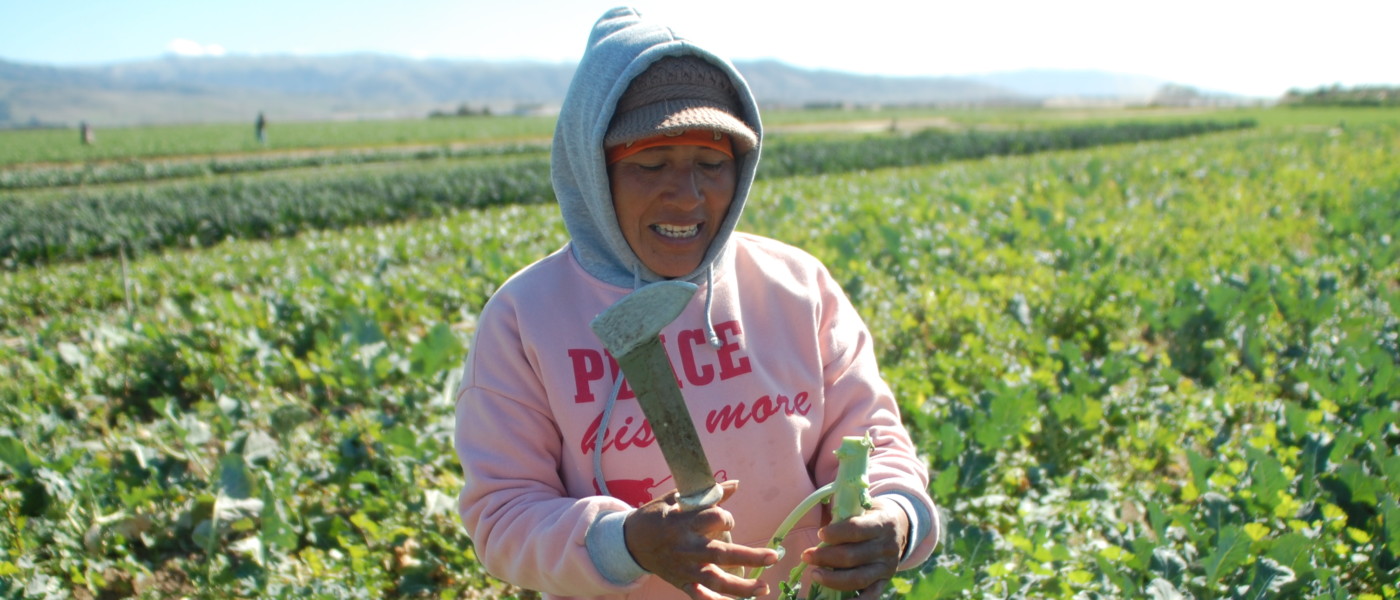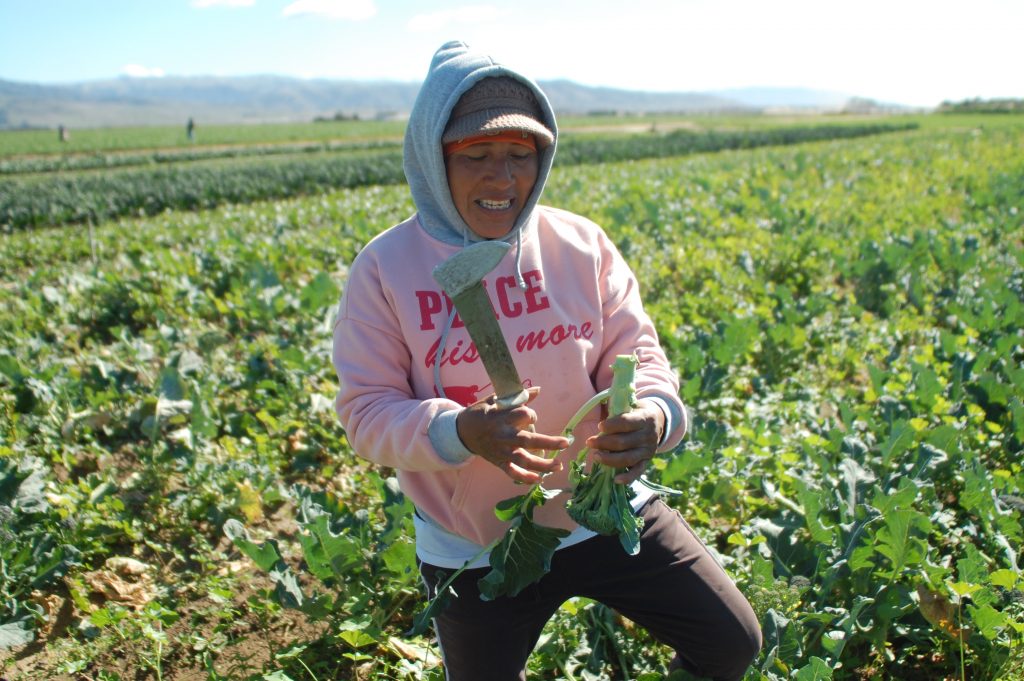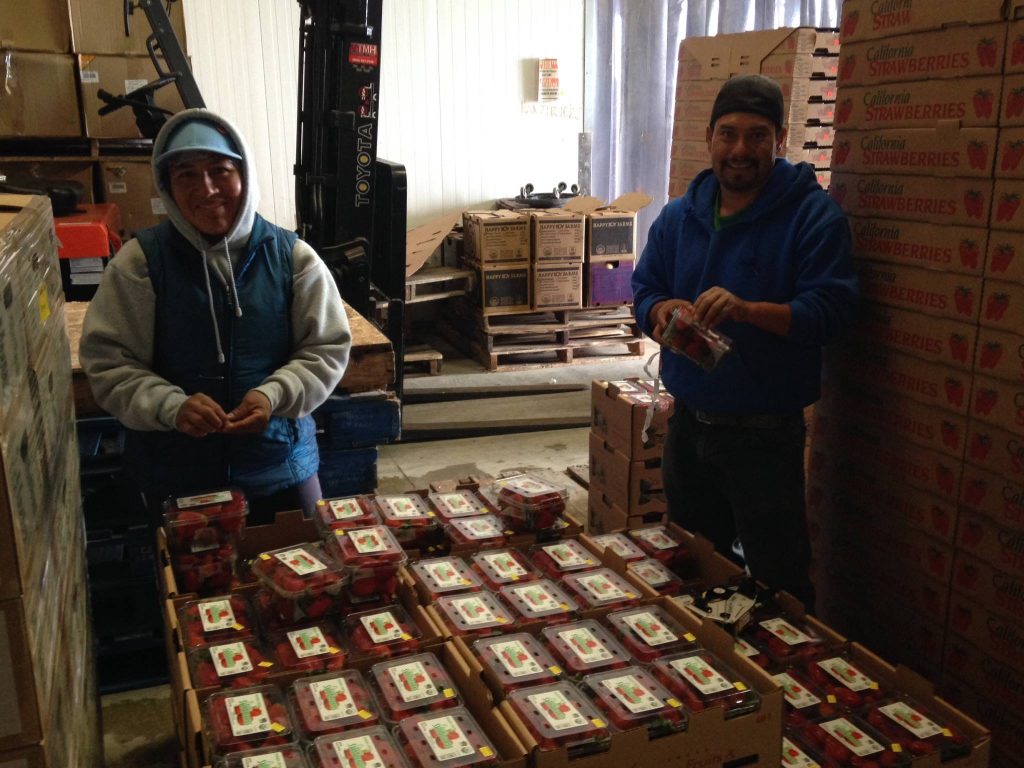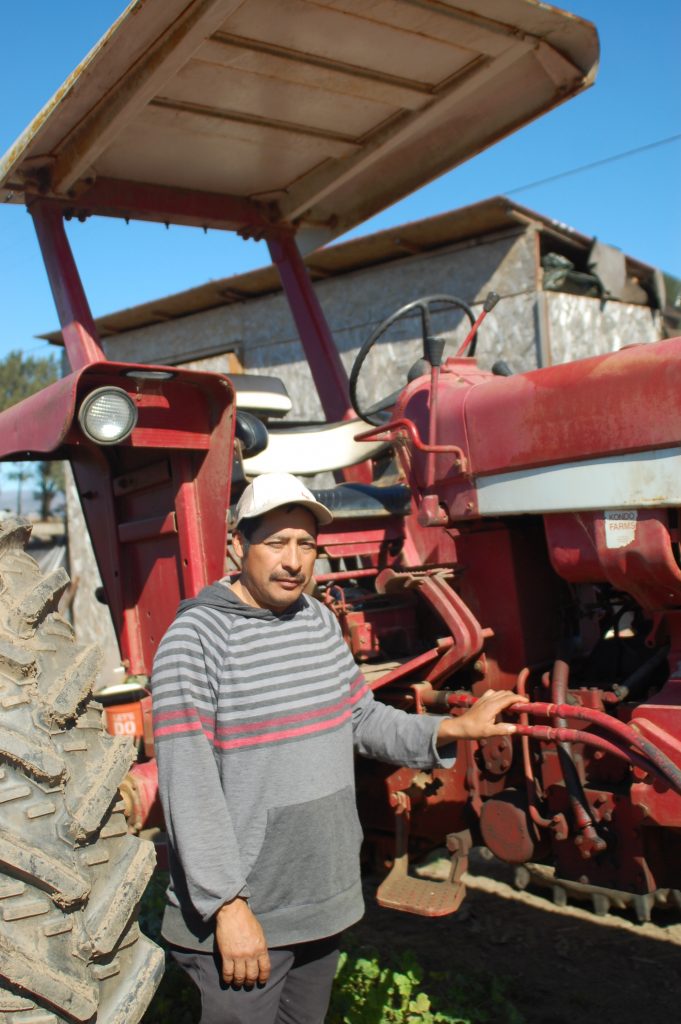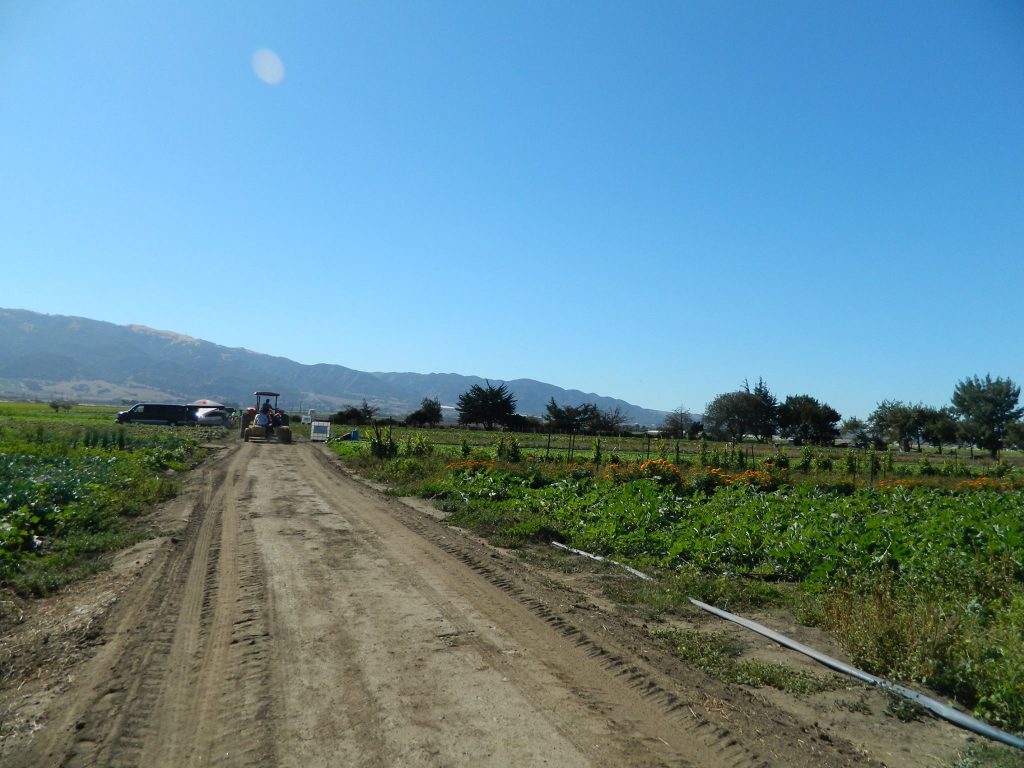With the average age of farmers nearing sixty, giving younger farmers the resources to start their own small business is an invaluable community service. That’s one reason that Farm Aid has worked with the Agriculture and Land Based Training Association (ALBA) since 2005 to help train aspiring farmers.
Since 2001, ALBA, which is based in Salinas, California, has provided technical assistance to aspiring minority farmers. They provide a rigorous course on becoming a farmer, and an organic incubator farm program for their graduates. “Every year, ALBA sends out a call to those wanting to pursue the dream of farm ownership”, says Executive Director Patricia Carrillo. “Most who answer the call are immigrant farm workers, who seek a better life and possess the ‘will and skill’ to succeed as farm owners.” Many of these immigrants have spent years or decades as farm workers, and have agricultural skills from youths spent on farms.
“Most who answer the call are immigrant farm workers, who seek a better life and possess the ‘will and skill’ to succeed as farm owners.”
Maria Ana Reyes
Maria Ana Reyes feels at home in the outdoors. In her youth, she took pride in growing beans, corn and squash in Alta Mariano, in the Mexican state of Guerrero. “I feel at peace in nature. The environment is soothing,” says Maria Ana.
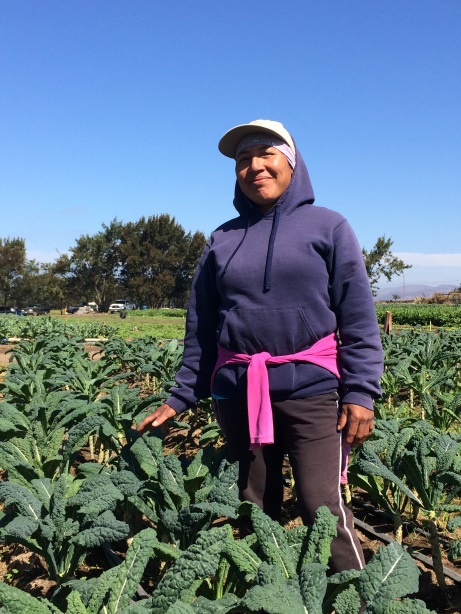
Meticulous in her words and her actions, she does nothing halfway when she commits. “I have been cultivating the land since I was a child. I have always known that working the earth and keeping it clean makes the quality of the plant much better.”
Farming is what she knows and loves, yet Maria Ana did not always have the confidence to believe she could do it on her own.
A lack of opportunity and rising crime in her home village brought Maria Ana to California in 1989. For years she worked on large commercial farms, harvesting berries and following the seasons back and forth between northern and southern California. It was hard work for low pay and some employers didn’t pay her at all. Regular exposure to pesticides made the work more difficult, causing respiratory problems and headaches.
She continued because she had to support a growing family and was unaware of any other options. “You work and you try to understand, and until the day you die, you never stop learning. But even when I wanted to know more, I did not know where to start.”
One day, a fellow parent at her son’s school told her about ALBA. “When I finally came to ALBA, I learned so much! How to eat differently, how to plant without pesticides, how to harvest and market products.” After two decades picking strawberries, Maria Ana finally felt like she was learning, developing her own ideas and starting to believe that she could accomplish great things. She graduated from ALBA’s Farmer Education Course in 2015, and is starting her own farm in ALBA’s Organic Farm Incubator program.
Maria Ana’s three oldest children, studying agribusiness and social work in college, take great pride in watching their mother become a business owner. In fact, they want to help her expand and grow as a small organic farmer. She says of her youngest son, “He wants to be a biologist and study organic pesticides. It does me good to see that they all study and that they are interested in agriculture.”
Maria Ana has plans of her own. “I have a goal. My children have been so successful and that motivates me to expand my horizons. ALBA has the resources for me to start and everything is on hand. I’m not scared anymore. I will keep growing, with tidy rows and beautiful results.”
Luis Silva
Luis Silva may not have had the chance to go to school as a child, but he always knew that to do better, he had to not only work harder, but work smarter. Understanding that his home state of Michoacan, Mexico, was limited in what it could offer, he made the bold decision to come to America. “The whole family came to this country of opportunity to have a better chance: to learn and grow. And that is how it has been for me.”
Arriving in 1986, Luis got steady work picking strawberries for big conventional growers. “I have always worked in agriculture. I love it and I think everything about it is beautiful. But though I was picking strawberries, I never really knew how to grow a good product.” Pay was much higher than in Mexico, but after having earned his GED, and with more than twenty years of experience, he dreamed of doing more. “My goal is to be the owner of something. That is the only way I can progress.”
He explains, “One day in the fields I was joking around with a friend, and I said, ’One day, I’ll be the boss. I’ll be the one to plant these strawberries… I just don’t know where to start.’ And my friend said, ‘Don’t wait, go to ALBA.’”
ALBA was a launching point to move Luis forward. Back in his home of Michoacán, he recalls no one using chemicals when farming. Now he says, “We are using so many chemicals that we are killing ourselves. Learning with ALBA, my mind was opened to these issues.”
Now, he wants to ensure that his customers know exactly what they are getting: pure organic food. “I plant and take a photo. When it starts sprouting, I take a photo. When it is growing well, I take a photo. Then I bring a box of the product along with the photos, to show my customers exactly what I have grown and what they are buying.” That personal connection, and the sincerity with which he farms, is essential to how Luis sees himself as a partner in agriculture.
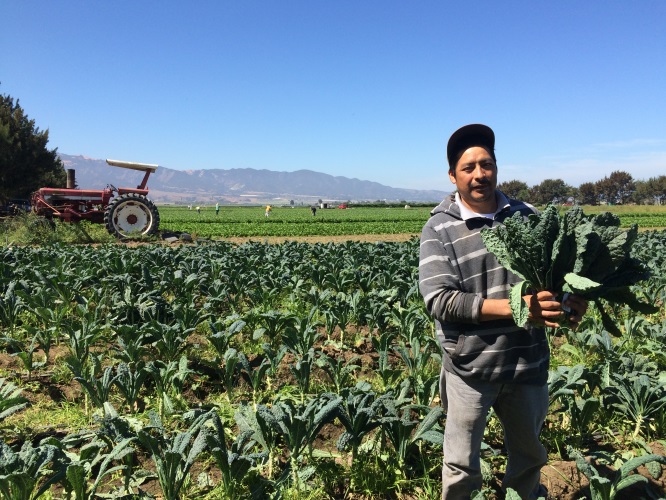
Luis’s commitment to integrity shines through in his philosophy about farming and the future. “Little by little is how you grow. This year, I am saving up all our earnings so that next year we can expand.” Luis started with growing vegetables and has now begun farming his strawberries. “I know the techniques now. How to care for the soil, and grow quality organic food.” Sure enough, with ALBA’s help, Luis is approaching his goal of being an independent organic farm owner, little by little.
Farm Aid is proud to have a hand in helping farmers like Luis and Maria Ana accomplish their dreams of becoming farmers. Programs like ALBA’s Farmer Education Course and Organic Farm Incubator are imperative to make sure that we have farmers on the land who care about the soil and water, good food and their customers. Check out more stories of our amazing grantees.

